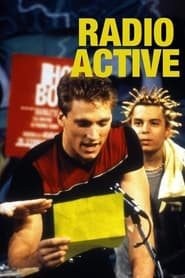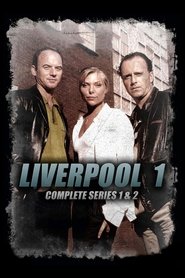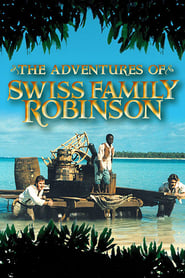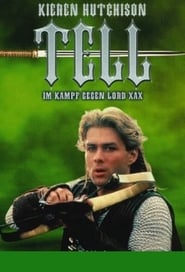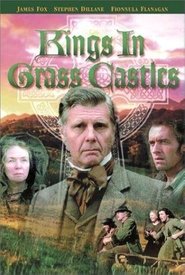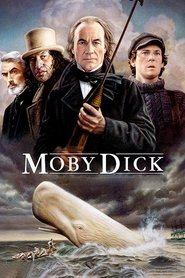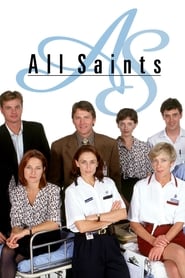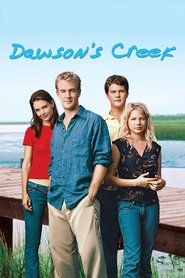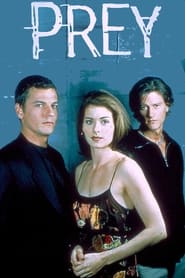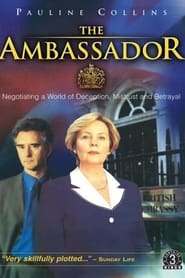New Drama TV Series on Tubi TV - Page 66
-
Radio Active
1998
Radio Active
1998
star 8.2Students at Upper Redwood High share in the sensational experience of hosting and collaborating together on a school radio show called Radio Active. -
Liverpool 1
1998
Liverpool 1
1998
Day to day, on the streets, they're at the sharp end of the fight against the drug pushers, porn barons, paedophiles and pimps who run this great port's crime networks. In this dark unequal world DC Isobel de Pauli is a stranger - not to crime, but to the ancient, unseen blood connections that pulse in the veins of Liverpool's criminals... and cops. -
Ultraman Gaia
1998
Ultraman Gaia
1998
star 8.6Ultraman Gaia is a Japanese tokusatsu TV show and is the 13th show in the Ultra Series. Created by Chiaki J. Konaka and produced by Tsuburaya Productions and Mainichi Broadcasting System, Ultraman Gaia was aired on JNN TV stations from September 5, 1998 until August 28, 1999, with a total of 51 episodes. -
The Adventures of Swiss Family Robinson
1998
star 5.9Classic saga of the merchant and his family shipwrecked on a South Seas island. This adaptation of the Johann David Wyss tale was one of the Pax network's initial offerings. -
The Legend of William Tell
1998
star 4.7The Legend of William Tell is a 16-part television fantasy/drama series produced in 1998 by Cloud 9 Productions in New Zealand. The basic premise of the series — a crossbow-wielding rebel defies a corrupt governor — and the name of the title character were adopted from the traditional story, but the series was set in a fantasy world and featured supernatural themes. Described by executive producer Raymond Thompson as "Star Wars on the planet Earth", this is a fantasy saga of bravery, magic, myth and romance. William Tell is the youthful leader of a band of young, ‘brat pack' outlaws, forever hunted by the forces of darkness, led by Xax and Kreel, who have usurped power in their homeland. The series of self-contained stories follows Will's quest to restore young Princess Vara to her rightful place on the royal throne and defeat Xax and Kreel's forces — and by doing so, bring back peace and order to the Kingdom of Kale. There is action and adventure along the way, magic, creatures, mystery, -
Hoy te Vi
1998
Hoy te Vi
1998
Hoy te Vi is a Venezuelan telenovela that was produced by and seen on Venezuela's Radio Caracas Televisión. It was directed by Renato Gutierrez and Luis Padilla. This telenovela lasted 180 episodes and was distributed internationally by RCTV International. -
Very Private Lesson
1998
Very Private Lesson
1998
star 3.2High school teacher Tairaku’s chances of getting a date with his colleague start to tank when his new transfer student Aya develops a crush on him. To make matters worse, Aya’s yakuza boss dad expects the meek Tairaku to protect her from the school’s perverted student body all the way until graduation. -
Knight Hunters
1998
Knight Hunters
1998
Four assassins, members of a group called Weiß, work out of a flower shop called Kitty in the House. -
Real Kids, Real Adventures
1998
star 7Electrifying true stories and remarkable acts of bravery and heroism of real kids who find themselves in harrowing situations. From a twelve-year-old girl who fights off a shark to an 18-year-old who overcomes his fear of heights to rescue a little girl dangling from a chair lift. -
Fancy Lala
1998
Fancy Lala
1998
star 7One day, a 9-year-old elementary schoolgirl named Miho Shinohara is given two stuffed dinosaurs by an unnamed stranger. The stuffed dinosaurs come to life and they present her with a magic sketchbook and pen. Within limits, and subject to varying degrees of control, she can draw in the sketchbook and bring the drawings to life. Miho can also transform into a teenage girl, whom she names Fancy Lala. One day, Lala is scouted by Yumi Haneishi, the president of the talent agency Lyrical Productions, and begins the long road to stardom. -
Kings in Grass Castles
1998
star 10The life of an Irish immigrant family in Australia in the second half of the 19th century. Based on a 1959 book of history by Dame Mary Durack. -
Moby Dick
1998
Moby Dick
1998
star 5.9The sole survivor of a lost whaling ship relates the tale of his captain's self-destructive obsession to hunt the white whale, Moby Dick. -
Our Mutual Friend
1998
Our Mutual Friend
1998
star 7.8After his father's will stipulates he must marry Bella Wilfer to inherit his fortune, John Harmon fakes his death to avoid the marriage and the threats on his life. He returns as John Rokesmith and becomes the secretary for the Boffins, who inherit Harmon's estate following his alleged death. -
All Saints
1998
All Saints
1998
star 6.1Medical drama focusing on the working and personal lives of the doctors and nurses working on the front line of a busy inner city Emergency Department at All Saints Hospital. -
Niña Mimada
1998
Niña Mimada
1998
star 6Niña Mimada is a Venezuelan telenovela that was produced by and seen on Venezuela's Radio Caracas Televisión. It was written by Valentina Parraga, and Irene Calcaño Germán Aponte and Sonia Nobrega and directed by José Alcalde. This telenovela lasted 112 episodes and was distributed internationally by RCTV International. -
Heat of the Sun
1998
Heat of the Sun
1998
star 5.9Heat of the Sun is a police drama set in 1930s Kenya produced by Carlton Productions. Starring Trevor Eve as Superintendent Albert Tyburn, a Scotland Yard officer sent to Nairobi after a shooting, the show focuses on the seedier side of the expatriate community in Kenya. It began airing in January 1998 in the UK and was broadcast in the United States in 1999 as part of Mystery!. -
Dawson's Creek
1998
Dawson's Creek
1998
star 7.3Dawson's Creek is an American teen drama that portrays the fictional lives of a close-knit group of teenagers through high school and college. -
Prey
1998
Prey
1998
star 6.8Bio-anthropologist, Dr. Sloan Parker, her colleague, Dr. Ed Tate, their associate Tom Daniels, and their friends, discover and investigate a secret new dominant humanoid species which is looking for a way to replace humans… PREY was a science-fiction television series that aired for one season in 1998 on ABC. The series starred Debra Messing, Adam Storke, Larry Drake, Frankie Faison, James Morrison, and Vincent Ventresca. -
The Ambassador
1998
The Ambassador
1998
star 6The Ambassador is a British television drama series produced by the BBC written by Hugh Costello. The series starred Pauline Collins in the title role as Harriet Smith, the new British ambassador to Ireland and dealt with the personal and professional pressures in Harriet's life, as well as wider political themes. Other notable cast members were Denis Lawson and Peter Egan. Two series were made between 1998 and 1999. -
An Unsuitable Job for a Woman
1997
star 6.5Cordelia Gray inherits a struggling detective agency after her boss's suicide. Her assistant Edith Sparshott aids her as she navigates the dark underbelly of crime, uncovering clues in complex cases.
 Netflix
Netflix
 Amazon Prime Video
Amazon Prime Video
 Apple iTunes
Apple iTunes
 Apple TV Plus
Apple TV Plus
 Disney Plus
Disney Plus
 Google Play Movies
Google Play Movies
 Paramount Plus
Paramount Plus
 Hulu
Hulu
 HBO Max
HBO Max
 YouTube
YouTube
 fuboTV
fuboTV
 Peacock
Peacock
 Peacock Premium
Peacock Premium
 Amazon Video
Amazon Video
 The Roku Channel
The Roku Channel
 AMC+
AMC+
 Kocowa
Kocowa
 Hoopla
Hoopla
 The CW
The CW
 Vudu
Vudu
 Starz
Starz
 Showtime
Showtime
 PBS
PBS
 Pantaflix
Pantaflix
 FXNow
FXNow
 Tubi TV
Tubi TV
 Kanopy
Kanopy
 Comedy Central
Comedy Central
 Crunchyroll
Crunchyroll
 Microsoft Store
Microsoft Store
 Redbox
Redbox
 Sun Nxt
Sun Nxt
 ABC
ABC
 DIRECTV
DIRECTV
 Crackle
Crackle
 Fandor
Fandor
 Plex
Plex
